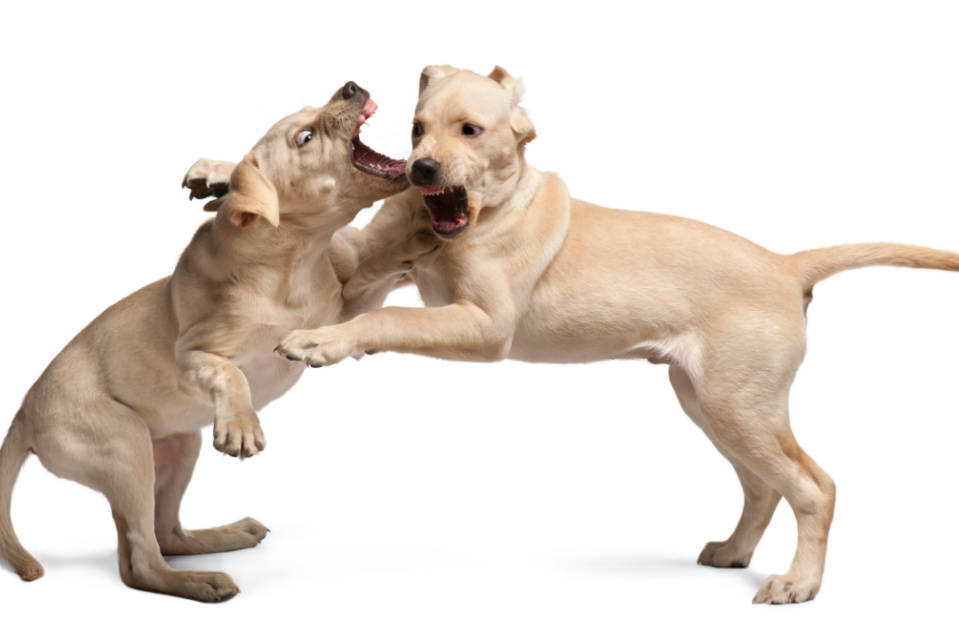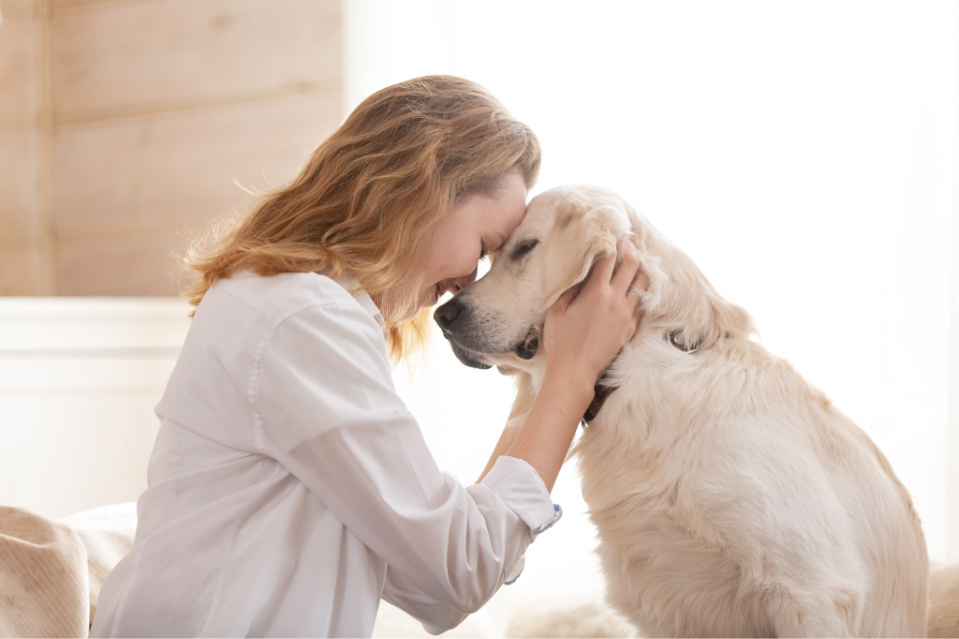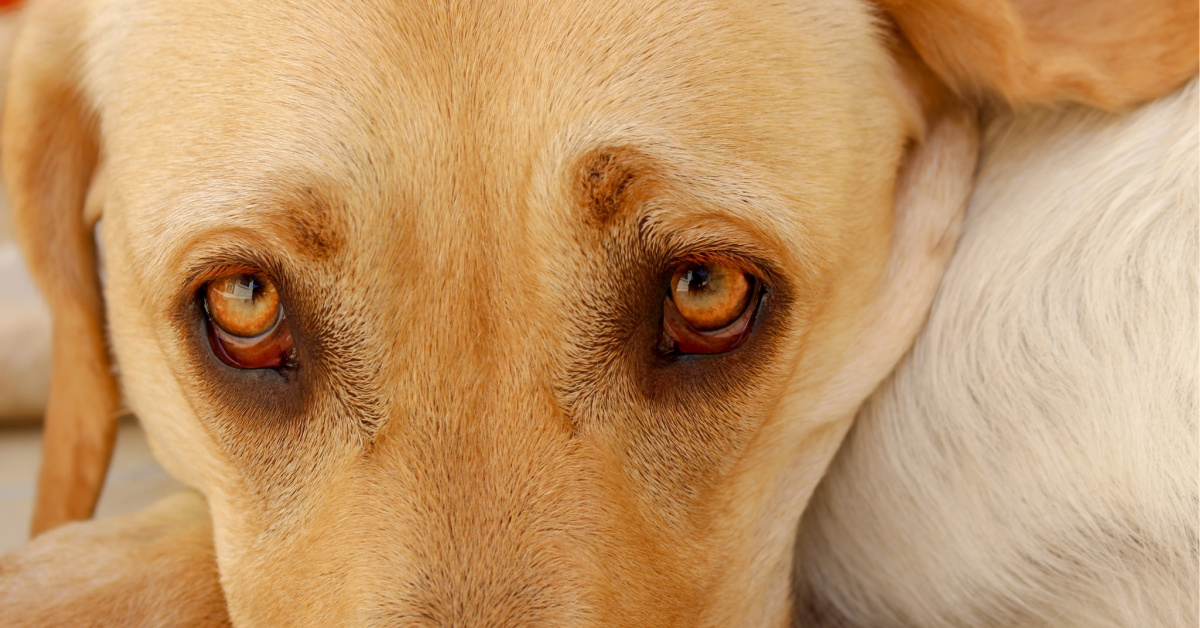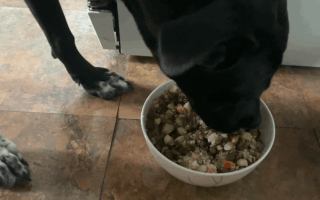Labrador retrievers are usually known for being very calm, docile, and friendly dogs. Typically full of energy, Labs possess numerous endearing traits that make them an excellent family companion. It is their good nature that makes them one of the most popular breeds of dogs. If you find that your ordinarily placid Labrador is suddenly becoming aggressive, here are some things that you will want to know.
Despite this, there may still be times when they can show aggressive behavior. After all, just like humans, dogs also have their personalities.
Common Signs of Aggression in Labrador Retrievers
It is essential to know what are the signs of aggression in Labs. This way, you can anticipate when your beloved quadruped will react badly to you. Knowing these signs will also give you an idea of how to calm an aggressive dog.
Some common signs of aggression in dogs include:
- Snarling
- Showing their teeth
- Ears pinned back
- Stiff body posture
- Growling
- Barking
- Lunging
- Biting with various intensity, which can range from light nips to more severe puncturing bites
Why Do Labrador Become Aggressive?

As a rule, it is rare for your Labrador retriever to become suddenly aggressive since they are docile and sweet by nature.
However, if they show sudden signs of aggression, you must learn why they do so. Your dog may have specific triggers that you are not aware of that cause them to be aggressive.
Some common reasons why your Lab may become aggressive include:
- Illness or pain
- Past trauma or stressors
- Protecting possessions or territory
- Establishing dominance
- Fear
- Anxiety
- Frustration
- Leash aggression
- Social aggression
- Feeling protective
Now that we know the signs and causes of dog aggression, here are the top seven tips on how you can deal with an aggressive Labrador:
Tips for Dealing with an Aggressive Lab
Tip 1: Reward appropriately.
An effective way to train your Labrador to be kinder and less aggressive is by giving them treats. However, this does not mean that you should give them gifts all day long.
Whenever your dog is calm and kind, you can give them a small treat. Do not give your Labrador treats when they are acting aggressively.
By rewarding good behavior, you will help them associate good behavior with tasty treats. Just remember, though, to never give these foods to your Labrador if you’re planning to give them treats.
Tip 2: Be patient.
Do not expect to change your dog’s behavior overnight, especially if your Labrador has been aggressive for a long time. Try not to be frustrated with them and not be mad at them because they might respond poorly.
It will take some time to introduce your Lab to new and acceptable behavior. Be patient and calm with them, and your dog will follow suit.
Tip 3: Play games.
Some dogs become aggressive when they do not use their energy, so they will find other ways to release their energy. Labradors have lots of energy, so it is essential to play games and walk them regularly.
However, there are some games that you should avoid. Games like tug-of-war can make your dog more aggressive because they feel like they have to fight for the toy.
Instead, you can do other fun games like hide-the-toy or fetch. Most Labradors love to swim, so you can swim with them in a pool!
Labrador retrievers love games. The more they associate you with playing games, the more they may stop showing aggressive behavior.
If you’re wondering what types of toys you can use for playing with your Lab, you may find some ideas from our blog post on the world’s most popular dog toys.
Tip 4: Understand your dog.

While most Labrador retrievers will share similar personality traits, that does not mean they are entirely the same. Each dog is different.
Your Labrador might be more sensitive, so it is crucial to understand what is causing them to behave so aggressively.
For instance, they might be aggressive whenever they are frustrated because someone is playing with them roughly. If you avoid being rough with your dog, they may stop being so aggressive.
Finding what triggers your dog’s aggression can help you learn how to make them calmer. Another example is if your Labrador starts barking and snarling at a squeaky toy. This may mean they are upset with the sound.
Tip 5: Establish dominance.
Ideally, you need to teach your Lab while still a puppy that you are the leader. That way, they will learn to respect your authority and obey you. If you do not do this, your puppy may take control and respond in any way.
However, if your Labrador is older, it’s not yet too late. You can still be firmer with your Lab to show them that you run the show. However, you must remember never to hurt them to establish dominance. That kind of training technique is not needed and may make your dog even more aggressive instead.
You need to find a way to train them so that they respect you but also consider you a friend. For instance, giving them a firm “No” and rewarding good behavior will help them learn the difference between “good” and “bad” while still loving and respecting you.
It would be wise to bring your Labrador to meet new people and dogs now and then. If your dog is not used to socializing, they may violently react when encountering unfamiliar people and other pets.
However, this does not mean that you should make your dog meet strangers right away. Instead, take them out on regular walks where there are other people and dogs. That way, your dog will be able to watch them and understand how he/she should behave.
You can also make your dog follow commands while you are out. For instance, saying “sit” or “stay” as needed will help them remember that they need to behave while in public.
Eventually, you should be able to introduce your Labrador to people and dogs. Make sure you introduce one person or dog at a time so that your dog will not get overwhelmed.
You should also not force your dog to interact with strangers. Let them find the courage to slowly go up to the stranger, especially unfamiliar dogs. It will be a more pleasant experience for them.
Tip 7: Ask for help.
If your Labrador retriever is very aggressive and hard to handle, don’t be afraid to ask for help.
You may need to find a professional dog trainer to help you correct your dog’s behavior. These people are skilled in handling aggressive dogs and know all the techniques required to help train the bad behavior out of your dog.
Conclusion
Labrador retrievers are generally known for being good-natured and sociable dogs. However, there may still be times that your Labrador may suddenly become aggressive.
When this happens, it is important that you know the possible causes of aggression in your Lab so that you will know how to address their behavior problem. By doing the tips we’ve mentioned above, you can help your dog become calmer and happier.







